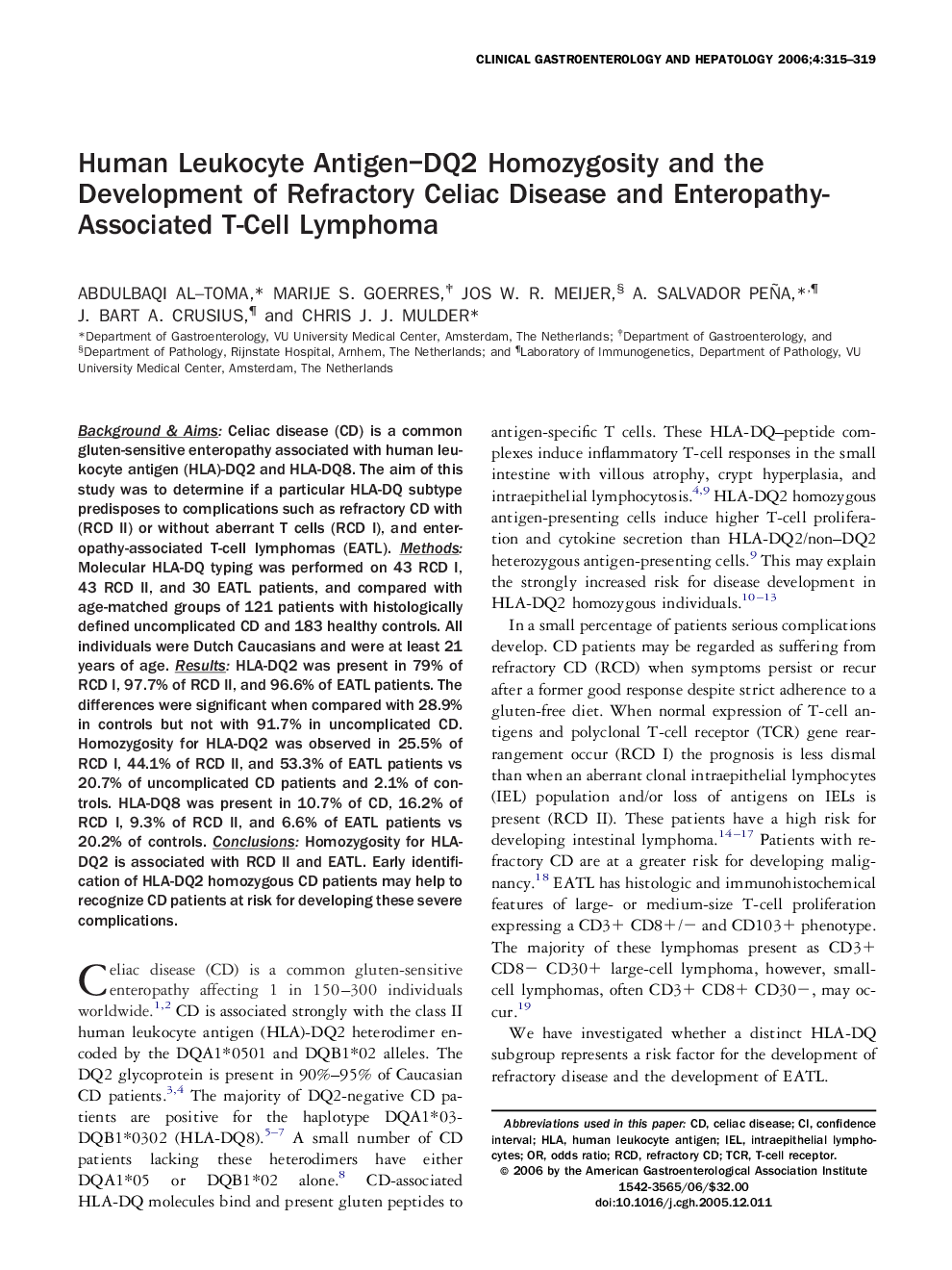| Article ID | Journal | Published Year | Pages | File Type |
|---|---|---|---|---|
| 3285880 | Clinical Gastroenterology and Hepatology | 2006 | 5 Pages |
Abstract
Background & Aims: Celiac disease (CD) is a common gluten-sensitive enteropathy associated with human leukocyte antigen (HLA)-DQ2 and HLA-DQ8. The aim of this study was to determine if a particular HLA-DQ subtype predisposes to complications such as refractory CD with (RCD II) or without aberrant T cells (RCD I), and enteropathy-associated T-cell lymphomas (EATL). Methods: Molecular HLA-DQ typing was performed on 43 RCD I, 43 RCD II, and 30 EATL patients, and compared with age-matched groups of 121 patients with histologically defined uncomplicated CD and 183 healthy controls. All individuals were Dutch Caucasians and were at least 21 years of age. Results: HLA-DQ2 was present in 79% of RCD I, 97.7% of RCD II, and 96.6% of EATL patients. The differences were significant when compared with 28.9% in controls but not with 91.7% in uncomplicated CD. Homozygosity for HLA-DQ2 was observed in 25.5% of RCD I, 44.1% of RCD II, and 53.3% of EATL patients vs 20.7% of uncomplicated CD patients and 2.1% of controls. HLA-DQ8 was present in 10.7% of CD, 16.2% of RCD I, 9.3% of RCD II, and 6.6% of EATL patients vs 20.2% of controls. Conclusions: Homozygosity for HLA-DQ2 is associated with RCD II and EATL. Early identification of HLA-DQ2 homozygous CD patients may help to recognize CD patients at risk for developing these severe complications.
Keywords
Related Topics
Health Sciences
Medicine and Dentistry
Gastroenterology
Authors
Abdulbaqi Al-Toma, Marije S. Goerres, Jos W.R. Meijer, A. Salvador Peña, J. Bart A. Crusius, Chris J.J. Mulder,
